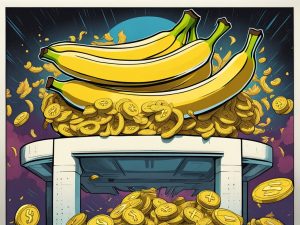Tesla’s Partnership with Hertz: A Lesson in Risk
As a crypto enthusiast, you are likely aware of the recent partnership between Hertz and Tesla. This collaboration was highly anticipated, as it involved two major players in their respective industries. However, what seemed like a match made in heaven quickly turned into a nightmare for Hertz. Let’s delve into the details of this partnership and explore why it went horribly wrong.
The Hype Surrounding the Partnership
When news broke that Hertz had placed a massive order for Tesla vehicles, the crypto community was abuzz with excitement. The partnership was seen as a stamp of approval for Tesla’s electric cars and a significant win for the company. However, the reality of the situation was far from what was initially perceived.
Initial Expectations vs. Reality
Despite the initial hype surrounding the partnership, things quickly took a turn for the worse. The deal, which was supposed to be mutually beneficial, ended up causing more harm than good for both Hertz and Tesla. Let’s break down what went wrong:
- Overestimation of Demand
- Hertz overestimated the demand for electric vehicles, leading to an influx of inventory that they couldn’t sell or rent out.
- Financial Strain
- The hefty investment in Tesla vehicles put a significant strain on Hertz’s finances, leading to financial difficulties for the company.
- Operational Challenges
- Hertz faced operational challenges in managing and maintaining a large fleet of electric vehicles, leading to increased costs and logistical issues.
The Fallout of the Partnership
As a result of these challenges, the partnership between Hertz and Tesla quickly unraveled, leaving both parties in a difficult situation. The fallout of the partnership had far-reaching implications for both companies:
Impact on Hertz
Hertz’s bet on Tesla’s vehicles had severe consequences for the company, including:
- Financial Losses
- Hertz incurred significant financial losses as a result of the partnership, leading to a decline in stock value and investor confidence.
- Reputation Damage
- The failed partnership tarnished Hertz’s reputation and credibility, impacting customer trust and brand loyalty.
Impact on Tesla
While Tesla initially benefited from the partnership in terms of increased sales volume, the fallout had negative implications for the company:
- Stock Volatility
- Tesla’s stock price experienced volatility as a result of the failed partnership, leading to uncertainty among investors.
- Reputation Risk
- The association with Hertz’s challenges posed a reputational risk for Tesla, potentially affecting future partnerships and collaborations.
Lessons Learned from the Failed Partnership
As a crypto investor, it’s essential to learn from the mistakes made in high-profile partnerships like the one between Hertz and Tesla. Here are some key takeaways from this failed collaboration:
- Due Diligence
- Conduct thorough due diligence before entering into any partnership to assess risks and potential challenges.
- Risk Management
- Implement robust risk management strategies to mitigate potential financial and operational risks associated with partnerships.
- Flexibility
- Be prepared to adapt and pivot quickly if a partnership isn’t yielding the expected results, to avoid long-term negative consequences.
Conclusion
In conclusion, the partnership between Hertz and Tesla serves as a cautionary tale for crypto investors about the risks and challenges associated with high-profile collaborations. By learning from the mistakes made in this failed partnership, you can make more informed investment decisions and avoid similar pitfalls in the future.
🔥Hot Take: Lessons in Risk Management and Due Diligence
As a crypto investor, it’s crucial to prioritize risk management and due diligence when considering potential partnerships in the industry. By learning from the missteps of Hertz and Tesla, you can navigate the complexities of the crypto market with greater confidence and avoid costly mistakes.





 By
By
 By
By


 By
By
 By
By